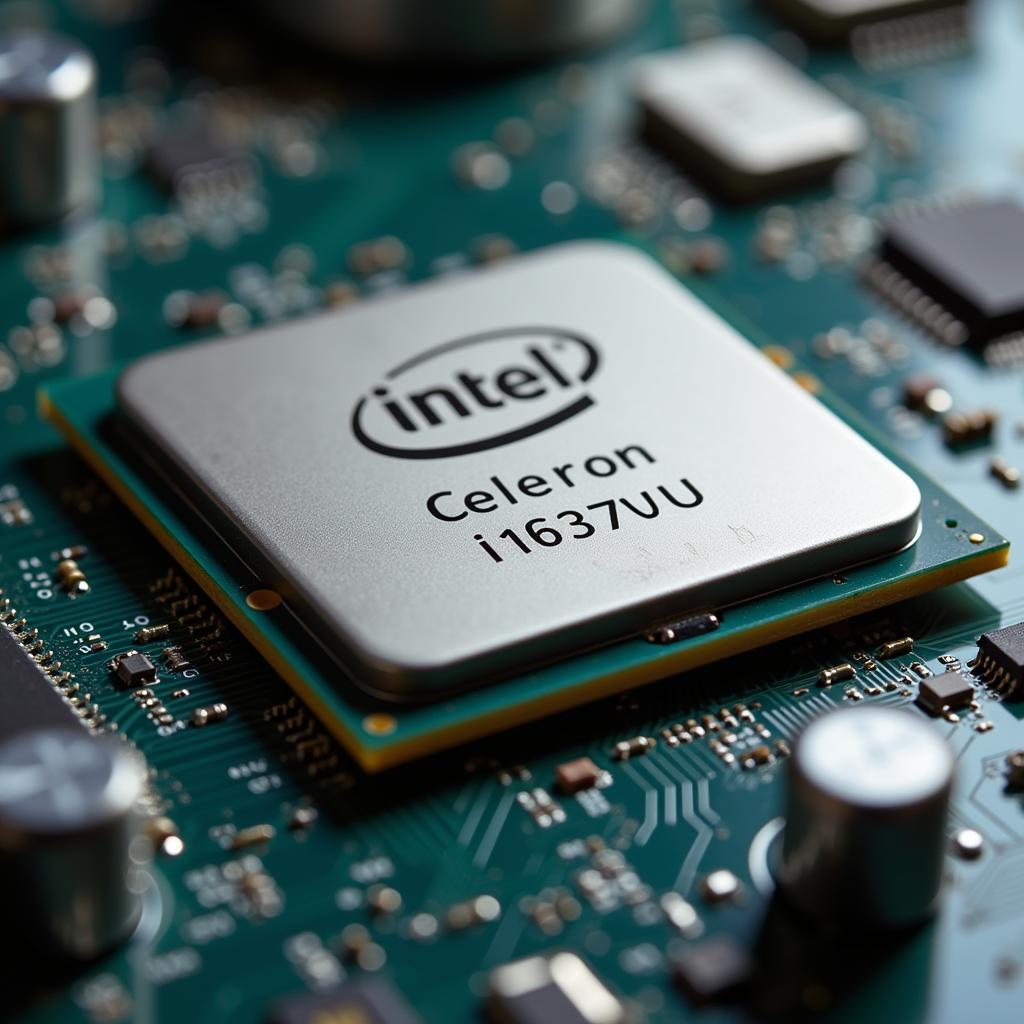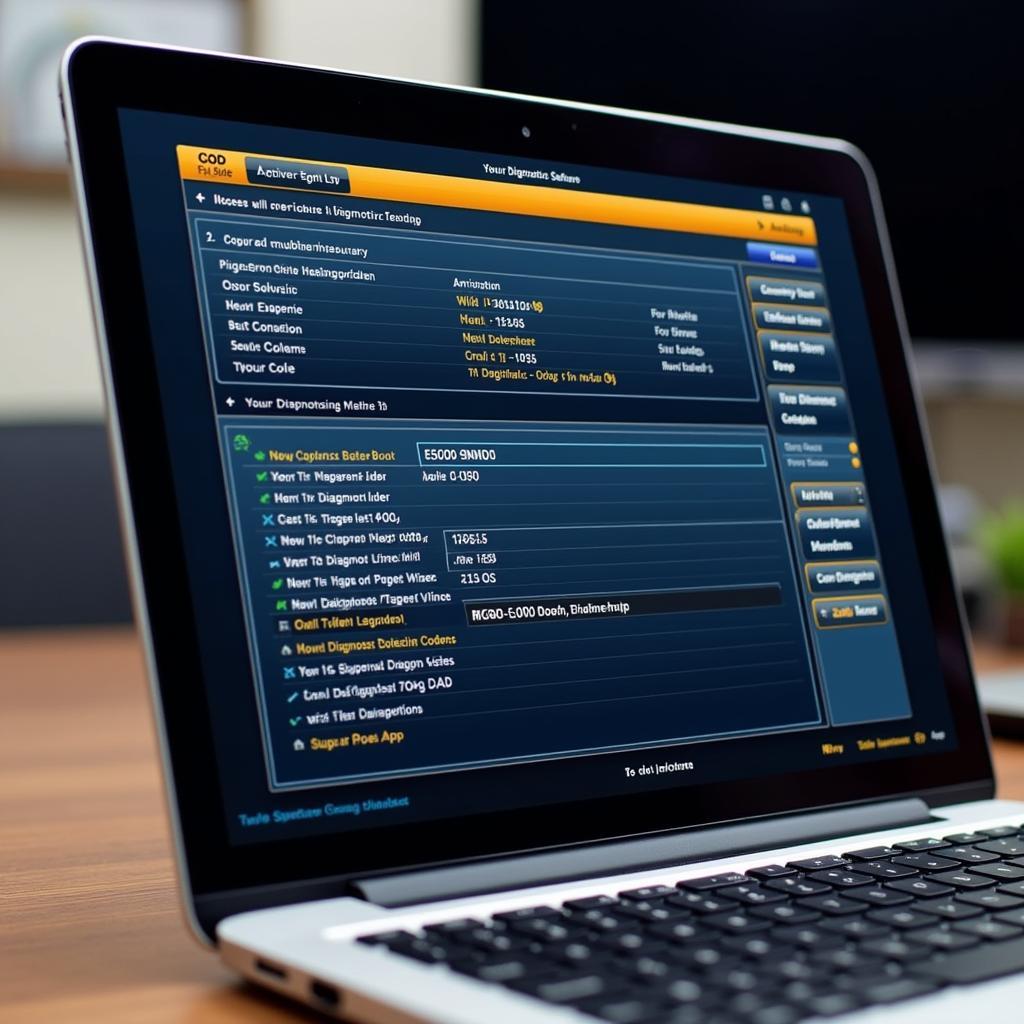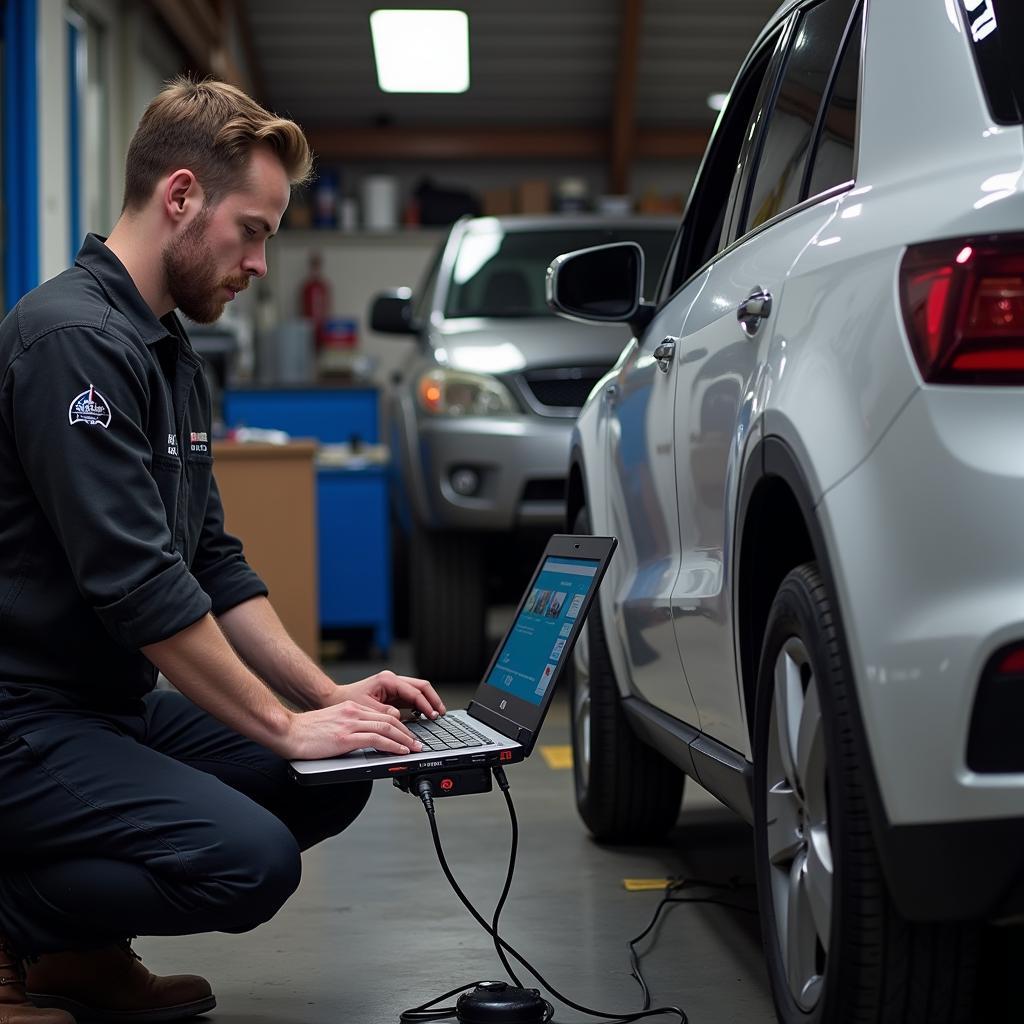The Intel Celeron 1037U is a popular choice for budget-conscious consumers looking for a laptop capable of handling everyday tasks. But is this dual-core processor powerful enough to run demanding car diagnostic software? In this article, we’ll delve into the capabilities of the Intel Celeron 1037U and explore its suitability for car diagnostic applications.
 Intel Celeron 1037U Processor
Intel Celeron 1037U Processor
Understanding the Intel Celeron 1037U
The Intel Celeron 1037U is an ultra-low voltage processor released in 2012, featuring two cores clocked at 1.8 GHz. While this might seem modest compared to today’s multi-core processors, the 1037U still holds its own for basic computing tasks such as web browsing, document editing, and multimedia consumption.
However, car diagnostic software can be resource-intensive, requiring significant processing power, RAM, and storage space. Let’s examine how the 1037U stacks up against these requirements.
Performance for Car Diagnostic Software
While the Intel Celeron 1037U might not be the speediest processor available, it can adequately run many entry-level and mid-range car diagnostic programs. Simpler code readers, OBD-II scanners, and software designed for older vehicles should function without significant issues.
 Car Diagnostic Software Interface on Laptop
Car Diagnostic Software Interface on Laptop
However, if you’re working with advanced diagnostic software designed for newer vehicles with complex electronic systems, you might encounter performance limitations. Tasks like live data streaming, module coding, and complex graphing could result in noticeable lag or slowdowns.
Factors to Consider
Here are some key factors to consider when evaluating the Intel Celeron 1037U for car diagnostic purposes:
- Software Requirements: Always check the minimum system requirements of your chosen car diagnostic software.
- Vehicle Complexity: Newer vehicles with advanced electronics may necessitate more powerful hardware.
- Multitasking: If you plan to run other programs simultaneously while using diagnostic software, a more powerful processor might be necessary.
Alternatives to Consider
If your car diagnostic needs exceed the capabilities of the Intel Celeron 1037U, several alternatives offer enhanced performance:
- Intel Core i3/i5/i7 Processors: These processors offer significantly more power and are ideal for handling demanding diagnostic software.
- Solid-State Drives (SSDs): An SSD can drastically improve boot times and software loading speeds compared to traditional hard drives.
- Increased RAM: 8GB of RAM or more is recommended for smooth operation of modern car diagnostic software.
 Mechanic Using Diagnostic Laptop in Garage
Mechanic Using Diagnostic Laptop in Garage
Conclusion
The Intel Celeron 1037U can be a suitable option for car diagnostic laptops if you’re on a tight budget and primarily work with less demanding software and older vehicles. However, if you require the ability to run the latest diagnostic software smoothly or work with modern vehicles equipped with advanced electronics, investing in a laptop with a more powerful processor and upgraded components is advisable. Remember, choosing the right hardware can significantly impact the accuracy and efficiency of your car diagnostic work.

Leave a Reply